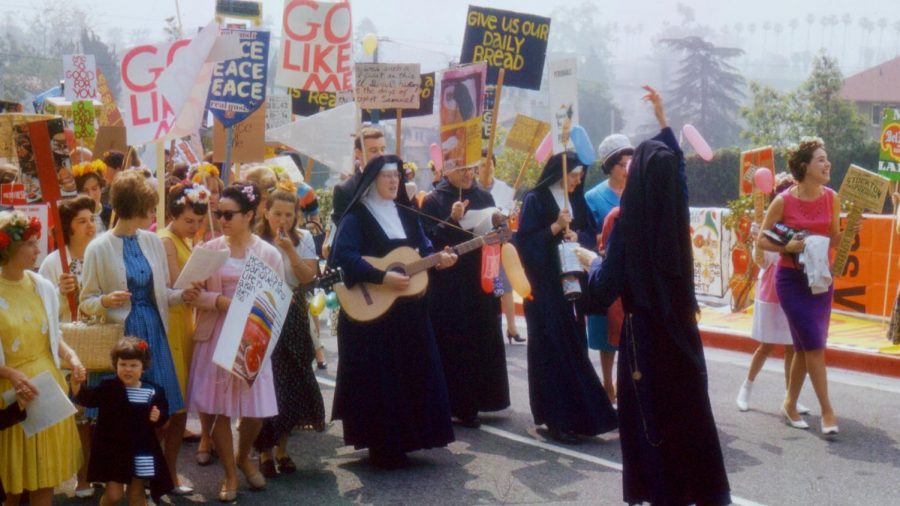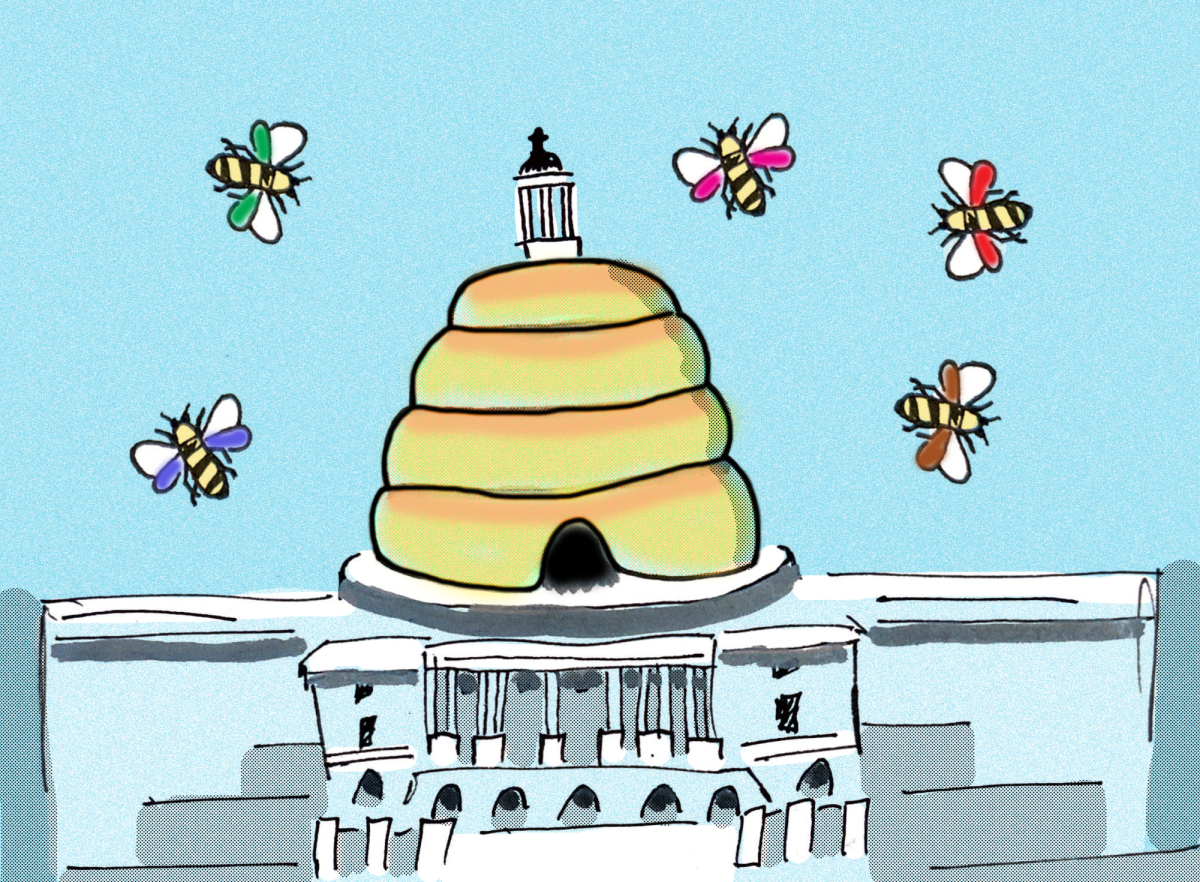The Immaculate Heart Sisters Continue to Make Waves in the Sundance Premiere of ‘Rebel Hearts’
February 1, 2021
Award-winning director Pedro Kos releases his second Sundance film “Rebel Hearts” at this year’s 2021 festival. This documentary tells the story of a group of Roman Catholic nuns living in Los Angeles, California in the ’60s. Their fight for social justice put them on the map in the United States as trailblazers for a new era of religious community and activism.
A Time for Change
The sisters from the Immaculate Hearts Community are interviewed at the start of the film about the intellectual climate to which women of the ’60s were confined. They were presented with few career options, little opportunity for education and a mandate to be married and raise children. The sisters pursued nun-hood in hopes of escaping these limitations and found oppression and conformity instead, as church leadership demanded obedience and strictly controlled the sister’s lives.
Dissension against the Archdiocese
The Archdiocese of Los Angeles at this time, Cardinal McIntrye, presided over the women in the Immaculate Hearts Community with an iron fist. A series of conflicts arose between the sisters and the Cardinal over key issues such as participating in protests for social justice issues, wearing the traditional habit and observing oppressive routines.
Cardinal McIntrye opened dozens of schools in Los Angeles and required nuns to teach at them. The sisters taught classes of over 80 students for little to no pay, with no teaching experience and no benefits. These women began their struggle against the Archdiocese over the course of the next several years in an effort that would lead to 351 of the 400 of the nuns dispensing of their vows and leaving the calling entirely.
Religious Hypocrisy
At the center of the conflict were the progressive changes the sisters fought for. Many attended the Immaculate Hearts College and participated in radical community involvement. As they began exploring art, science, politics and spirituality, their favorability with the church shifted dramatically.
The sisters were arrested at protests, met with civil rights leaders and fought against white supremacy. They marched against the Vietnam War, fought for better conditions for farmworkers and took measures to make meaningful changes in their own community. The sisters also took measures to fight for change and experienced repercussions from the church. They were investigated and finally forced to submit to the will of the church or leave. Most chose the latter and moved out of the formal structure of the Catholic Church.
Religion Revived
In the aftermath of their departure, the sisters stayed true to their cause. Though the Vatican rolled back many of the progressive changes they made during the ’60s, the sisters stayed together and formed their own group. To this day it functions beyond the limits and reaches of the Catholic church.
The sisters maintained operations at the Immaculate Hearts College for some time and continue to teach at the Immaculate Hearts High School. They fight for underserved communities and fight the norms imposed on them by the Catholic church. In the film, one of the sisters says that today “it is not just a gender issue…I see the interconnection between sexism, racism, ageism, homophobia, colonialism… all of those forms of domination are interlinked”.
This documentary tells a story of a group of women fighting against oppressive forces in order to do what is right and stand up for those in need. Their legacy and work continues to this day and will inspire generations to come.
Screenings and information about ‘Rebel Hearts’ are available here.













Zofia • Feb 1, 2021 at 7:34 pm
Former Immaculate Heart alum here. Immaculate Heart, not Hearts.
Vivian E Engel, IHM • Feb 1, 2021 at 1:49 pm
I joined the Immaculate Heart Community in 1995, long after the courageous nuns had formed their ecumenical community. As a social worker, feminist, activist for justice, and spiritual seeker for our purpose in life, I needed “community” to keep me positive and energized in the fray. I consider myself a non-church affiliated spiritual person but a follower of the teachings of Jesus and therefore a “Christian”. As a member for over 25 years now, I still feel proud to be an IHM (Immaculate Heart of Mary). We have members in Florida, Utah, Canada (Tofino originals!), Oregon, Arizona Washington, New York, and the majority still in California. We are gay and straight, black brown and white, Catholic and other, married and single, women and men. We are united in caring for God’s people and God’s earth and heavens.